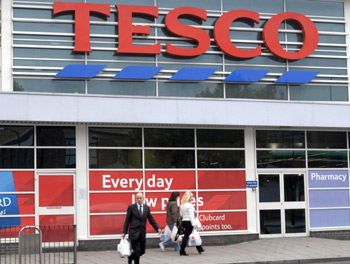Tesco’s British sales dip again

While Tesco's international business is up 1.1%, the company posted a drop in underlying British sales for the fourth consecutive quarter
16 December 2011
Tesco posted a drop in underlying British sales for the fourth consecutive quarter as shoppers cut spending on discretionary goods like clothing and electricals.
However the group’s international business excluding fuel and on a like-for-like basis was up 1.1%, held back by
disruption in Thailand caused by flooding.
The company, which takes about one in every £10 spent in British shops, said sales at British stores open more than a year, excluding fuel and VAT sales tax, were down 0.9% in the 13 weeks to 26 November, Tesco’s financial third quarter.
Tesco makes around two thirds of its sales and three quarters of its profit in Britain.
Despite the fall, the retail giant’s chief executive Philip Clarke said: “We have made good progress in our third quarter against the background of challenging conditions for consumers in many of our markets.”
He added: “In the UK, our increased investment in the shopping trip for customers is starting to deliver. The Big Price Drop campaign, now in its second phase, has lowered prices significantly for hard-pressed families and we are now being rewarded with stronger food volume growth”.
However Kantar Worldpanel confirmed that while Tesco’s £500m Big Price Drop campaign brought in more shoppers, it was nevertheless the only supermarket among ‘the big four’ to see its market share fall on a year earlier.
Edward Garner, director at Kantar Worldpanel, said: “With more products available for less, the amount of cash taken at the tills has understandably dropped. Despite this, Tesco has successfully attracted more shoppers to its stores through the promotion.”
Tesco’s decision to cut the cost of 3,000 items, triggered an aggressive response as competitors hit back with their own schemes, such as Sainsbury’s Brand Match campaign and Asda’s move to cut petrol prices.
Tesco’s UK share has slipped from 30.7% a year ago to 30.5% while its growth rate of 3.8% has fallen behind rivals, according to Kantar Worldpanel for the 12 weeks to November 27.



 Print
Print






Fans 0
Followers